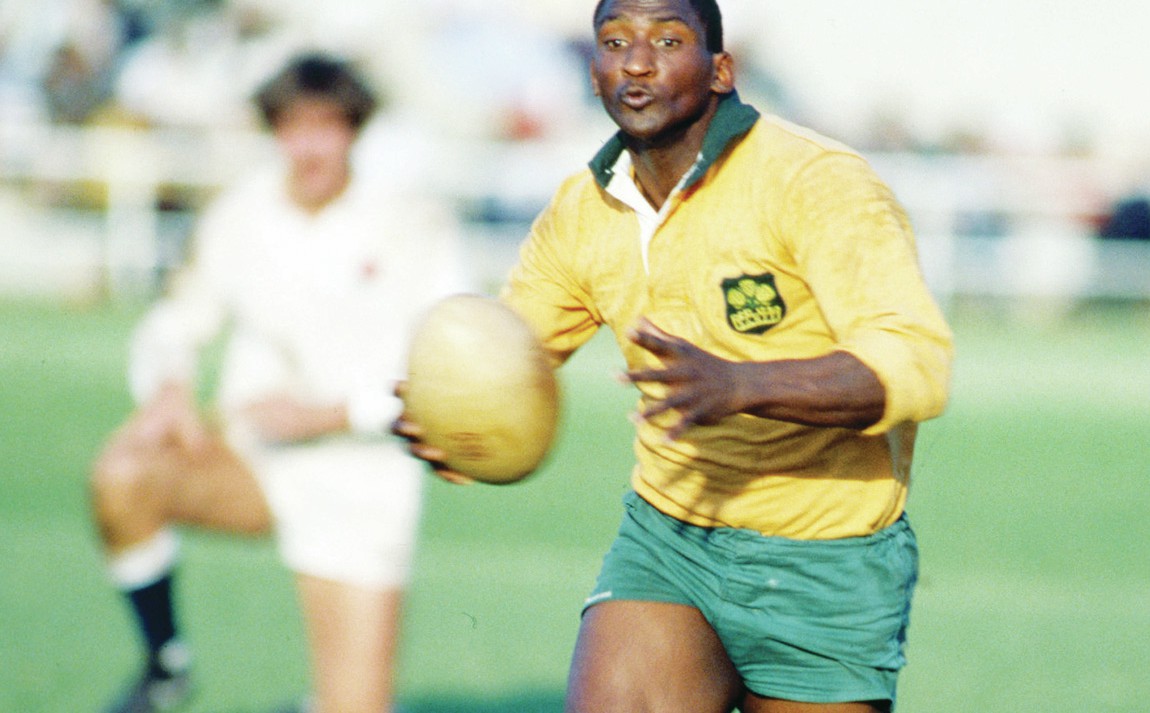Errol paved way for today’s Springboks

WE mark all sorts of landmarks in rugby these days, so much so that we possibly lose sight of the really important milestones, so let's celebrate today the 40th anniversary of the first black player representing the Springboks in a Test match.
That man, of course, was Errol Tobias who at the advanced age of 31 made his celebrated Test debut against Ireland at Newlands in Cape Townin May, 1981, lining up at centre alongside Danie Gerber. The Boks won 23-15.
For some reason Tobias' achievement seems to have quickly disappeared in the rear-view mirror of history along with memories of a little discussed tour which nonetheless caused much acrimony and soul searching within the Irish rugby community and beyond at the time.
After the 1980 Lions tour, the sporting and political world started to mass in earnest against the hated apartheid regime which was increasingly being sent to Coventry and there seemed no good reason whatsoever why Ireland should plough on with their planned tour, only their second visit to South Africa with their first coming in 1961.
Three men of honour, Moss Keane, Tony Ward – who hadn't liked what he saw on the 1980 Lions trip – and Hugo McNeill, made it quite clear they would not be touring for moral reasons. One or two others withdrew citing injuries and at least one Ireland player has bitterly renounced his decision to participate on the tour.
That latter was scrum-half John Robbie who stayed on to make a life in South Africa where, after a business career, he became an outspoken opponent of apartheid in his role as a breakfast time TV and radio host. He has, however, often called his youthful decision back then as a stain on his life and something he has bitterly regretted ever since.
The entire sporting world was against the tour, or so it seemed and fearing large demonstrations if the squad made an official departure from Dublin, the selected players flew in four or five separate groups to Heathrow before they assembled en bloc and made the trip south.
Their cloak and dagger manoeuvres were described in the Irish Press as “one of the most inglorious exits from the country ever. The IRFU team to misrepresent Ireland against South Africa slunk out of Dublin virtually in disguise and certainly, in the eyes of most of their fellow countrymen, in disgrace.”
The UN and ANC condemned the tour and the Archbishop of Durban Denis Hurley warned: “Be quite clear about it. Both white South Africans and the black majority of people in South Africa clearly interpret the tour as an acceptance of the policy of Apartheid.”
There were repercussions beyond rugby. That summer over in Oslo Ireland's top middle distance runner Ray Flynn was thrown out of the prestigious Bislett Games because the large African contingent competing, led by the Ethiopians, threatened to withdraw if the Irishman was allowed to compete.
And what of Tobias, who had been a player of Test quality for the best part of a decade for all the good it did him? Ten years earlier he had starred for the Proteas side when they toured Britain – the Proteas was an affiliation that represented all the segregated unions in South Africa, ie all the players of colour.
Why was he picked in 1981? We will never fully know but Dr Danie Craven, the Godfather of South African rugby had definitely sniffed the wind and re-assessed the opposition South African rugby – the cricket team had long been ostracised – was encountering and softened his previous hard-line stance. He became an extremely influential champion of Tobias. And what the Doc wanted he usually got.
When he was finally capped, Tobias was unbeaten in his six internationals during which South Africa played with unusual fluency for that period and scored 18 tries.
Having made his debut in the series against Ireland in 1981 as a centre he toured New Zealand that controversial summer – missing out on selection for the Test line-up – but returned to help inspire the rout of England in 1984, this time operating at fly-half. He signed off with two more impressive performances in the ten shirt opposite Hugo Porta when the Boks played a South America XV later that summer.
You might have assumed that Tobias was a hero for the black community at the time and indeed he was for many, but there were also those who criticised him for ‘selling out' and playing along with the alleged tokenism of the South African Board.
“We had no say in politics. We didn't even have a vote, so all I knew at that stage was to play rugby,” recalled Tobias in his autobiography. “My goal was simply to show the country and the rest of the world that we had black players who were equally as good, if not better, than the whites, and that if you are good enough you should play.”
Later this summer, 40 years on, the makeup of the Boks squad to play the Lions will surely provide ample testimony to that.